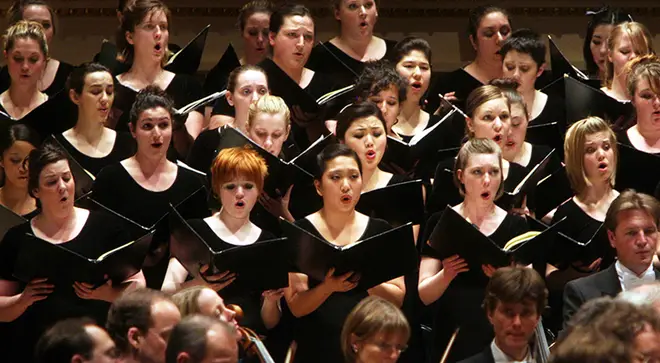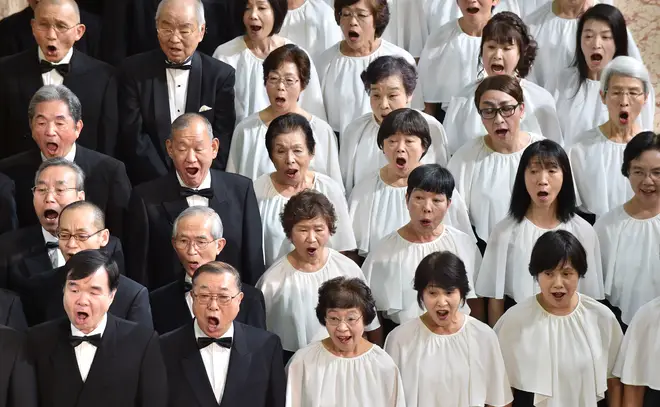Singing in German is ‘riskiest’ for spreading COVID-19, study finds
29 January 2021, 13:04

Trilling in the German language poses a greater risk than crooning in Japanese, according to this research into how singing can spread COVID-19.
Last year, scientists found the language you speak could play a role in the transmission of COVID-19, because of aspirated consonants. In English, for instance, the letter ‘P’ creates a puff of air, emitting respiratory droplets.
Now, new Japanese studies have investigated the emission risks of singing in certain languages.
In one study, commissioned by the Japan Association of Classical Music Presenters (JACMP), eight professional singers – four male tenors and four female sopranos – performed brief solos in Japanese, German and Italian in a COVID-secure laboratory.
They sang excerpts from a popular Japanese children’s song, Beethoven’s ‘Ode to Joy’ and Verdi’s La Traviata.
As you might expect from its impassioned lyrics (well, just imagine ‘Freude, schöner Götterfunken’ being bellowed by a great chorus from the back of the Gewandhaus…) Ludwig’s hymnal theme created more than twice as many particles per minute (1,302) as the Japanese children’s song did (580).
The Verdi produced twice as many, at 1,166 particles a minute.

“When singing in German, we advise our members to stand at the maximum distance from each other,” Masakazu Umeda, general secretary of the Japan Choral Association, told CBS News.
JACMP director Toru Niwa said the findings shouldn’t discourage singers from performing European music during pandemic, adding that Japan’s professional choirs haven’t had one community transmission event, regardless of the language being sung.
“Classical music is basically the Western canon,” Niwa told CBS News. “If we stopped singing in French, Italian and German, we wouldn’t be able to perform anymore.”
From the beginning of the pandemic, there have been anxieties around singing due to a handful of widely publicised ‘superspreader’ choir rehearsals in the US and Europe.
In Japan, Niwa adds, many choirs are rehearsing and performing again following studies showing that with the right precautions, including ventilation, masking up and social distancing, the risk of transmission is significantly lowered.
Read more: Choir practice in Spain transmits coronavirus to 30 out of 41 members >

Orchestra in self-quarantine host virtual concert and perform Ode to Joy
In another study by the Japan Choral Association, 20 child and adult singers sang solo passages from a Japanese graduation song, and from Beethoven’s Ninth.
While singing in Japanese flung particles a maximum of 24 inches (61cm), trilling in German sent them up to a distance of 44 inches (111cm) from a singer’s mouth.
Umeda and Niwa explained the Japanese language, with its softly voiced consonants, has a more delicate touch when it comes to vocal emissions.
Currently in Japan, choral singers must distance on stage and opera singers are advised to face away from each other while performing. Across Europe, a rise in COVID-19 cases has put a much stricter limit on singing in groups.


































